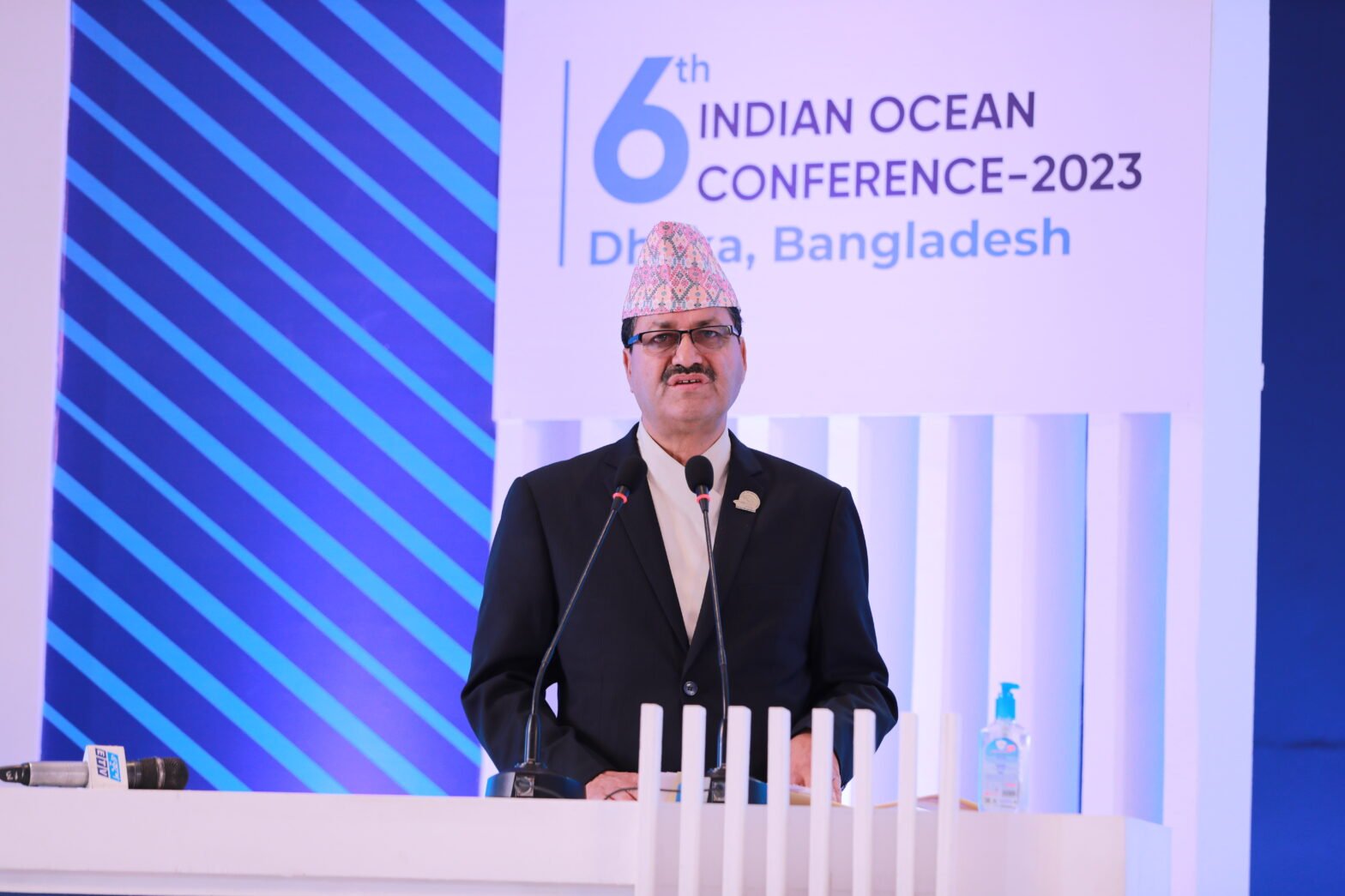The last three years were full of turbulence and turmoil. The COVID-19 pandemic controlled our lives in one way or the other. Millions of lives were lost, livelihoods were disrupted, and societies and economies were distressed. Now, we are moving ahead in the phase of post-pandemic recovery and revival. But the road to recovery is not uniform. The developed countries have largely returned to pre-pandemic growth paths. However, the developing countries are struggling hard to catch up with the pace of recovery. However, the crisis has also provided us with a window of opportunity to reset our priorities and rebuild better. There is an opportunity to build a sustainable and resilient future.
The third-largest body of water in the world, the Indian Ocean is a vast geographical space. It is not only rich in diverse marine resources but is also the route to one-third of the global trade. It is therefore significant in strategic, economic, and ecological terms.
As the ‘natural superhighway’ of trade routes, the Indian Ocean is also a gateway to the international market for a landlocked country like Nepal. Therefore, our aspirations of prosperity are contingent upon peace and stability in the region. Yet, marine terrorism, climate change, human trafficking and trafficking of weapons and drugs threaten peace and security.
We cannot have a prosperous and resilient future in the absence of peace. No one country can safeguard peace and security alone. We need to work together on the principles of mutual respect, justice, and equality of all nations. This is critical because the Ocean is not just about the abundance of marine resources, list of trade routes, and graph of economic growth. It is also about our cultures and connections. It is also about our lives and livelihoods.
When we talk about the link and ecological interdependence, we must also consider the ‘organic link’ between mountains- the water towers- and the Ocean- the water reservoir. When we talk about protecting marine ecosystems, we must consider the health and wellbeing of mountains. This is key to realizing the prospects of ‘blue economy’ while preserving and conserving mountain economy. Sadly, the climate crisis has upset this natural link. The melting of mountain glaciers and sea-level rise have endangered lives and livelihoods both in the coastal and hinterland states. Both mountainous and low-land countries have been bearing the brunt of climate change. International commitments and promises abound, Commitment to halt warming at 1.5 degrees, to establish a fund of $100 billion, to double adaptation finance, to accelerate the green energy solutions, to establish a loss and damage fund as recently committed at Sharm El-Sheikh — and the list goes on! But, actions on the ground do not match these promises. Therefore, we need bold climate action. We need to work faster and go further.
On Nepal’s part, we plan to reach net-zero emission scenario by 2045. We remain committed to this goal. Given our hydropower potential, we stand ready to contribute to the clean energy solutions in South Asia. Our aspiration to a resilient, peaceful, and prosperous Indian Ocean region must go beyond economic and strategic considerations. This means ensuring smart and sustainable use of marine resources, ensuring the rights of all to explore, navigate, and utilize these resources, and ensuring transformative actions to restore the Ocean’s health. We must rescue it from pollution, plastics, and chemicals.
Nepal believes that connectivity is the key to regional integration. Our vision of a prosperous and resilient future cannot be materialized without enhanced connectivity through land, air, and water. We must connect our mountains with oceans. We must connect our products with markets. The international community must provide support to help the land-locked developing countries overcome their geographical constraints.
All this warrants that we better frame the future of collaborative partnership, with our peoples, our countries, and our region at the core. Our partnership must be anchored around the ideals of international law, inclusiveness, and cooperation. Nepal remains committed to engaging constructively in this regard.
We cannot overemphasize the glory, magnificence, and importance of the Indian Ocean. Let us work together to ensure the real, robust, and responsible actions for a peaceful, prosperous, and resilient future of the region. Let us ensure that we pass a healthy Indian Ocean to our children and grandchildren.
Author Brief Bio: Hon. Narayan Prakash Saud is the Minister for Foreign Affairs, Government of Nepal.
Note: This article is based on the Text of the Speech delivered by Hon. Narayan Prakash Saud, Minister for Foreign Affairs, Government of Nepal, at the 6th Indian Ocean Conference 2023 in Dhaka on 13 May 2023.




